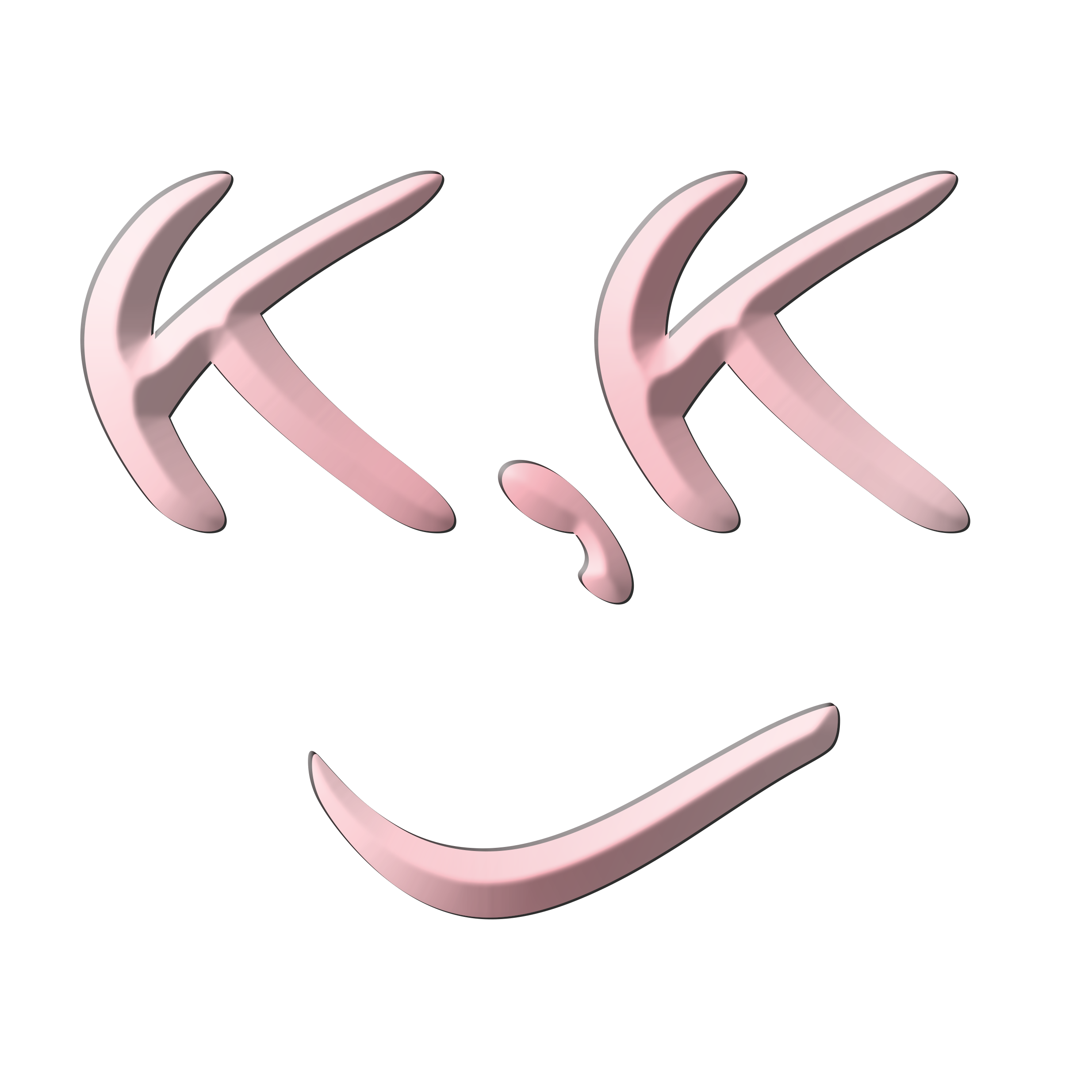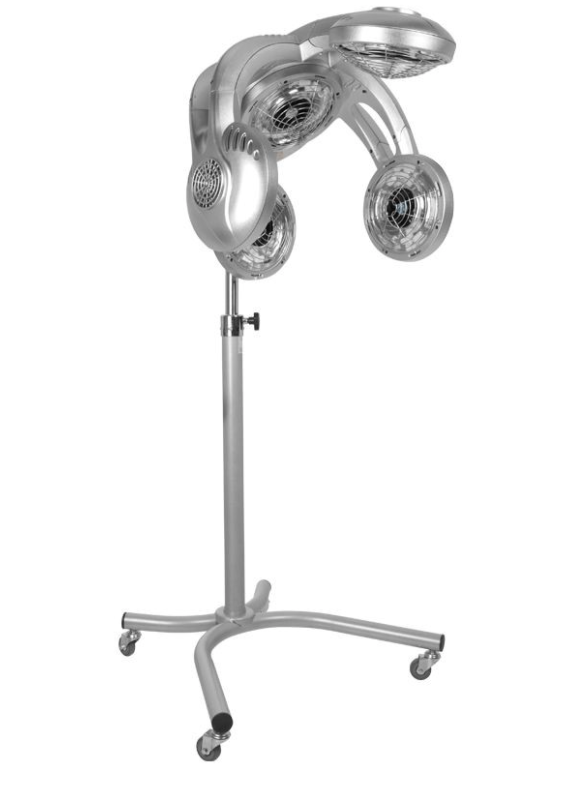Cru Encarnação
Cru performing at Radikale Passivität: Lecture Performance mit Elena Vogman
Cru Encarnação
Cru Encarnação (they/them or he/him) is a performance artist, writer and translator born in Lisbon and based in Berlin. They have studied Philosophy and Comparative Literature at Freie Universität Berlin.
Among other venues they have performed at ACUD MACHT NEU, Horse&Pony, nGbK, diffrakt., transmediale 2019, Low Text, Hopscotch Reading Room, Zwitschermaschine Gallerie, MUTEK 2020 and former Internet Xplorer. They have been published by the collectives Bridge (Berlin) and FALTA (Açores, Portugal) and streamed at Ma3azef or Radio Caso.
In his works he seeks to create open-ended brainstorms that platform the cognitive-motorical and chemical-physical expansion of socially constructed meaning. His dissociative and fictional modus operandi discloses a fragile yet vicious reality.
You can find his Instagram here and links to their performances can be found here and here
Intro
CW: health axiety, anxiety, fear of illness, fear of death, graphic description of bodily sensation.
H̴̡̪̞͈̗̜̗͍̩̹̖͛͒̀͂̔̕͜ͅY̷̧̗̟̖̞̙̲̘̻̣͒̀̒ͅP̵̨̛͕̲̓͌̃͑͗̅̈́̎̔̅̾̄Ơ̴͚͚̱̔́̓̓̾͋̄̕C̵͈̒̇̂̀̃H̸̢̡̢̪͍̺͇͚̙̪͕̓͊̔̄͐̐̃̍̏͑̆̆͝Ö̶̡͚̬̖̗̘̫͕͔̞͌̓͌͜͜Ñ̴̛͕͐̈͆̾̌͂̾̀͌D̵͎̣́̓͂͝͝R̷̨̻̲̖̜̹̗̹̞̍̈́̽̈́̇̽͌̒̊̿I̷͖̥͇̻̐̾͗̑̓̿̊́͘͜͝Ä̷̡̪͎̗̥͙̩̞̱́̋̀̾͗ ̵̛̳͖̲͇̳̙̥͚̊̊̕&̷̛͙̯̹̤̜͂̎̏͑̈̿́́̓͑̉̒͝ ̷̨̛̠͔̪̘͇̱̫̙́̏̾̓̎͆̀̄̇͜͝A̶̹͉̯̜͂͋̒̂͘P̸̥̟̟͇̰͚̭̘͙̥̺̄̐͋͐̒̍̒̀̾̾̚̚͠͝Ǫ̵͛̈́͑̏̓̈́̒͊̎̚̕͝͝C̴̛͍̟̪̘̮̺̫͍̥̼͓̘̖̜͔̀͌͐̅̆̃̒͊͆͠͠À̷̪͍͎͕̼͚͔Ĺ̸̹͉͙̰̰̙̗̜͓̾̈́̾̿̽̔̎͝Y̷̧̧̬̯̼̠̝̟̝̲̺̊͒͝P̷̛̛̩̮̻̱̫̫͔̋̐̊͑͜Ŝ̴̩̿̈́̂͆̀̍E̶̱̞͂̽̍̓͌ͅ
As to the future, Madame, it’s something we should have started much earlier.
Doctor Génessier, “Les Yeaux Sans Visage” (1960)
[…] e depois todos os processos de brutalidade que vão ocorrendo na História do mundo como a gente conhece são formas de apocalipse. São formas de acabar com o mundo e da gente ver o mundo acabar mesmo. […] e a cada minuto, a cada momento que a gente está aqui, esse apocalipse está sendo armado, activado em vários contextos.
Jota Mombaça in conversation with Slim Soledad “Planos Para o Pós-Apocalipse” (May 2020)
Control. The control of knowledge, the control of borders, the control of diet, the control of habits, the control of emotions, control of populations, control of animals, control of resources, control of riots, control of economy, control of emissions, control of a virus, control of crime, control of nature, control of culture.
Either we have the mission to plan, organise and archive things as (we think) they should be or we can’t and we will die because, since we can’t control them, they will take control over us.
Either we will recreate the role of water by freezing it into perfect cubes and arrange them in clean couverts or we will drown in that same water that happens to exist around us.
Control often blurs the line between human survival and its self-identification (or of those who narrate human self-identification itself, that is, the rich white cis man). Do we have control over things because we have to in order to survive or do we control, because we believe we are greater than the rest (and by this we mean that and those which have been othered)?
Control is associated with the double-edged sword of the determinism-relativism binary. It is the factor in question around these two distinct philosophical positions. While the former position (determinism) sees control as impossible, the latter (relativism) describes it as unavoidable. The former predicts a world that is meant to be as it is, because its so believed starting point or intrinsic and profound nature dictates so. The latter predicts a future in the hands of agents - humans, mostly. The former implies often an abstention of critique, since critique is to be made upon that which could have been or could be controlled - you can’t control “destiny”, you can’t control “biology”. The latter exists as a tool of critical examination and self-reflection - we have to undo this because we are in control; we have the duty to control ourselves to coexist with others because we are in control.
Control is as reassuring as it is haunting. Because, in the way it is conceptualised, it either exists or it doesn’t. What we can’t control, will control us. This kind of dash over what or who controls who or what first is the main existential mode the white cis man has chosen for himself. The fear of being controlled is what triggers the need to control in the first place.
This pandemic has shown us the tension between having control and losing control. From the cluelessness and fear, to the creation of hundreds of conspiracy theories, to the massive effect on everyone’s mental health, there are countless phenomena occurring in this situation that arise from that binaristic balance between having control or losing control. The control of the future is put in question, when the control of the present seems impossible. It is a crisis of knowledge and truth and control is understanding and power over truth. Therefore, it is a crisis of control as well. But the dilemma around control has always been here.
This space is dedicated to discussing, elaborating and exploring the notions of hypochondria and apocalypse, which have come across to me as really uniquely related to the idea of control that was briefly described above.
Hypochondria, also known as health anxiety or hypochondriasis describes the excessive preoccupation or worry about someone’s health. Here control enters as a mechanism to prevent the worst that is possibly imaginable, death or unbearable suffering.
What we know as apocalypse is the idea of an end of the world. Here the world is control and has collapsed, which leads to an end of times, an end of life.
Both hypochondria and apocalypse exist with the premise that something terrible will happen and that control is or isn’t there and therefore prevents it or leads to it.
So much more can and will be said about these two concepts and their relation to control and especially to our pandemic/lockdown situation. For now we want to keep this space relatively open and encourage everyone who would be interested and has ideas around these topics and their inter-relation to submit and participate in this collective research.
1. 15th January - Intro
2. 16th January - 4th February: Hypochondria
3. 5th February - 24th February: Apocalypse
4. 25th February - 1st March: Hypochondria & Apocalypse
Stay tuned †
2. hypochondria
̇͒͂ ́ ̋̃̂͆͒ ̉ ͊͌̔̔ ̃̀̾̔ ̋͋͆̓ ̿̍̏͆͘
Ḧ̴̳̻́̃yp͊̂ǫ̅c̸̢͈̘̘͓͓̟̒̀͛̋̈́͐͜͜͝h̸o̫n̽ď̟ṟ̷̴̮̳͎͕̘̏͑͂͊̈́͘īą̷̴̱̳͖̣̽̿͑̉̀̾̈́̏ͅ ̸̵̴̨͔̘̺̱͙͓̼͈̬͎͎ ̸̷̭͎̻̲͕͔̖̥̯̟̫ ̰
͕̩̣
CW: health anxiety, anxiety, fear of illness, fear of death, graphic description of bodily sensation.
Hypochondria or hypochondriasis, also know as health anxiety comes form the greek word hypokhondria, which means “under the cartilage of the breastbone”. “Hypochondriac" entered English language in the 16th century to term the upper abdomen. At this stage of modern medicine, this part of the body was thought to be connected and originating melancholy or what we would call today depression. Until the 19th century this remained the central meaning for “hypochondriac”, a person suffering from “depression without a cause”. It was also used for all conditions that caused chest pain or symptoms for which it was impossible to find a diagnosis. This included some PMS’s, about which doctors did not feel like discussing amidst a supposedly “polite” cis-male medical discussion. Only in the 19th century “hypochondriac” started to denominate “someone who suffered from illness without specific cause”. Nowadays we describe with “hypochondria” the excessive preoccupation or worry about someone’s health and “hypochondriac” as someone who thinks or talks excessively about their health.
One example of health anxiety would be deducing from a slight chest pain that there is a severe heart problem that will lead to death. Another example would be to feel something in one’s head and think that one has a brain tumor that will lead to death.
Usually hypochondriacs go to the doctor to get checked and even if there is concrete proofs that their health is fine, they will always think about the possibility that doctors themselves did not do all the necessary exams to find out about this rare disease they carry.
Hypochondria is usually connected with generalized anxiety, panic and OCD. These conditions all have the common aspect of creating scenarios that convince a person about their lack of control over their bodies or the world around them.
Common thoughts in hypochondria: “am I dying?”; “my feet are numbing, I’m developing diabetes!”; “am I going crazy?”; “is this a migraine or a silent stroke?”; “am I losing my hearing?”, “is this lump normal or do I have breast cancer?”; “am I anaemic?”, “what if I don’t wake up tomorrow?”
Hypochondria can be so strong that you actually develop extreme psychosomatic sensation. When these fears take over your thoughts, you actually start to feel the things you believe to have. For example, a slight sensation of numbness in your leg leads to the thought of having diabetes, which leads to this sensation of numbness actually becoming strong and constant.
From my own experience of hypochondria, I remember having a period of time of a full year, in which I woke up everyday thinking I would die. I called my best friend from the bathroom stall asking her to stay on the phone with me in case I had a stroke or a heart attack. I also felt constant sharp pains all over my body that became stronger and stronger and I knew the more I though about them, the stronger they would be. I went to the doctor three times and even though they told me I was fine, I could not sleep thinking that they had made a mistake and not seen everything.
This can be caused by a specific trauma of experiencing or witnessing an actual life dangerous disease or generalised anxiety, which creates all possible scenarios of life dangerous situations, like something falling from windows on top of us, being hit by a car, dying while sleeping because gas leaked from the pipes. Hypersensitivity in the body can in some cases be caused by depression and eating disorders too.
Documentation from the removal of my cyst, 2016
One of the reasons why want to talk about hypochondria is because of the contrast it draws between an extreme connection with the exterior world of possibilities and an extreme alienation from it. On the one hand, hypochondria exposes the field of possibilities that could be in the world and why. On the other, it erases all agency from the subject that might be affected by these possibilities.
Hypochondria is a kind of sense-making amidst the contingency of the world. The intricate relations of causality and all the possible butterfly effects are lived. The experience of existing in a world is overwhelmingly complex. We are constantly, like all the things around us, being influenced by exterior factors, most of them even unknown to us.
Hypochondria also shows the potencial of rationality. It becomes clear that rationality can escalate into something absurd and outside of reality while in many contexts it is used to describe the ability to be grounded. Hypochondria is not irrational. It is actually a highly rationalised chain of thought pulled by a main engine: fear and anxiety. Rationality does not exist in a “sober mental state of facts”. Rationality does not exist in a vacuum of objectivity. I believe it is actually a vector that is drawn by emotionality, trauma, hope. I feel hypochondria shows us exactly this.
Something worth mentioning about hypochondria is the way we connect with our bodies. Even though we are hypersensitive to the point of not being able to balance out local peaks of sensation and our general proprioceptive feeling of bodily totality, we are connected to it and, besides that, confronted with the power we can have over our bodies. Psychosomatism emerging from hypochondria shows us the power of our conscious selves in influencing our bodily perception, experience, our thoughts, etc.
One could, however, say exactly the opposite. One could say that we are indeed very disconnected from our bodies through hypochondria. One could also claim that this avalanche of over thinking possibilities about our bodies’ physicality, like what actually is happening in it, how blood flows, how bones connect, how our brain functions, how food gets absorbed etc. shows how little we know about it.
Me having to deal myself with several episodes of hypochondria, the one thing that overcoming it taught me is that our control of the world is not measured in extremes. The world is neither completely controllable by us, nor is it completely out of our grasp. In a late-stage capitalistic society arranged in biopolitical structures and modes of bodily control, we can be extremely disattached from our bodies and, at the same time, feel that we can change everything about them.
Where's the cure to your heart?
CW: health axiety, anxiety, fear of illness, fear of death, graphic description of bodily sensation.
Candie, DJ, performer and music producer from Buenos Aires ties a first knot between hypochondria and apocalypse.
Her text and music wake up dangerous demons, thirsty for self-destruction: hypochondria.
A nightmare of dark, vicious and violent psychological landscapes, in which we are our own self-destructive agents. We cannot detach ourselves from the monsters we create and become. Hypochondria, a moment of apocalypse as self-annihilation and the triumph of our most evil sides.
A contribution by Cylan Barker, from Atlanta based in Berlin
Cylan Barker, photo by @alikxmf
~~I think it reminds me of mystery and anxiety of not knowing what’s wrong with you lol and going back and forth between feeling ok then feeling not ok over and over. The repetition in the song reminds me of that.~~
A soft atmosphere is not the same as a pleasant one, because it traps us into having to feel good, when we know that maybe something is wrong.
Cylan’s Fundraiser link can be found here
“Curator’s predictions for the end of the world
”
Sound track to the end of the world
The end of the world never looked like it does on television. A wide spread panic of people infected with a virus, set up by the government as an experiment that left the whole world evacuated, besides communes that are run by army bases.
I saw Shaun of the Dead and it shaped my concept of what I would do if there was an apocalyptic existence. I would steal a car and drive around without needing to obey with the rules but besides this it would not go much further. When I was younger - before I came out as transgender - I wondered what it would be like if the entire word was empty and I was the only one existing. I would have the whole world to see and play. And my first thought was to go to all the extravagant boutiques and wear Edwardian dresses whilst driving a Porsche 911.
Edwardian Dress
Porsche 911 (Classic)
But besides this I had no real plan. Without people there is no rules and if you were the only left alive I think you would eventually waste the worlds resources before you end up depressed. Without human contact and purpose it’s difficult to enjoy the things in our life.
Regarding our current climate, we are essentially in an apocalyptic environment. We have all the signs, masks, virus, death and economic destruction. We are learning to adapt to a fighting tactic of finding money in a time like this. It’s odd to consider how ordinary a pandemic is, on the outside looking in. For the most part, if you keep safe, follow rules you would find it hard to catch something but humans are not perfect beings. It’s not possible to completely follow a guideline and other factors are out of our control. What senses me is the overwhelming sense of normality applied to the pandemic. Everyone is affected so therefore everyone is affected, irregardless of status. How we deal with it is a different matter.
1. 15th January - Intro
2. 16th January - 4th February: Hypochondria
3. 5th February - 24th February: Apocalypse
4. 25th February - 1st March: Hypochondria & Apocalypse
3. Apocalypse
A̶̹͉̯̜͂͋̒̂͘P̸̥̟̟͇̰͚̭̘͙̥̺̄̐͋͐̒̍̒̀̾̾̚̚͠͝Ǫ̵͛̈́͑̏̓̈́̒͊̎̚̕͝͝C̴̛͍̟̪̘̮̺̫͍̥̼͓̘̖̜͔̀͌͐̅̆̃̒͊͆͠͠À̷̪͍͎͕̼͚͔Ĺ̸̹͉͙̰̰̙̗̜͓̾̈́̾̿̽̔̎͝Y̷̧̧̬̯̼̠̝̟̝̲̺̊͒͝P̷̛̛̩̮̻̱̫̫͔̋̐̊͑͜Ŝ̴̩̿̈́̂͆̀̍E̶̱̞͂̽̍̓͌ͅ
The echo and the end
When you spend 10 hours delivering burgers on a bike you certainly will start to notice somethings around you that repeat over and over again.
One thing to be noticed is that you will find yourself out in the city for the whole day. Not that I don’t like it at all - otherwise I wouldn’t live in the city - but imagine taking a 10 hour walk outside and having routes like the twists and turns of unorganized cables on the backstage of a theater. And besides that, you have no destiny, but many many stops, which force you to move under pressure. Under pressure of being on time, under pressure of being harassed by people on the street and under pressure of being hit by a car at Hermannstraße.
So, taking a long and hectic 10-hour walk in a miscellaneous route, having no destiny and dozens of stops. If you think about it, it really sounds like the haunted version of the Flâneur.
The second point you will notice is more related to the space itself where this occurs then with the proper action that you’re taking. All of this is happening under the circumstances of a pandemic, which do make the streets emptier. And if they are not completely empty, you want them to be, since you don’t want to get infected. So, emptiness and space around you is something that either exists or you want it to exist for your own safety.
When emptiness becomes an existential condition in a space that is designed for crowdedness and overflow, the unpleasant echo of its walls will reverberate for whoever is inside it, like the metal of a church bell around your head. Everyone is still inside it, but everyone is inside it by themselves.
As the traffic lights change periodically from red to yellow to green and then back to yellow and red and yellow and green and so on, the trains slouch through the railroads on the viaduct over your head. The blasting ambulance sirens come and go and burn you inside like hot soup running down your gut. And again and again, the buzzers, which are signalled downstairs when you press the button and all clang the same. The incessant sound of the door unlocking when you announce that food is there. And again and again the “on-call” chain of beeps that you hear every time you finish a delivery. The traffic lights again clacking when they turn green for the pedestrians. And again and again, the buses accelerating by releasing some kind of filthy air and the reprisal of a honk on your face, the cars around you and their squeaking of sudden breaks. And the constant waiting for that one-time beep that indicates a new order. And on top of all of this your bike chain is a chainsaw cutting through the cold wind and powered by your muscular legs and the boomerang of breath that your mask pushes back against your face.
All of these repetitions are not something new when one talks about the city. There is an artistic tradition originating in the growth of industrialised cities that would be well embodied by Marinetti, Whitman, Álvaro de Campos, the Russian Futurists or mexican Estridentismo, where the repetitious and insanely ear-piercing sound of the city is artistically explored as a motion of progress, of future, of hope and mutation of the human condition into something else we don’t know yet. The sound of the mechanic city fills the observer with the hopeful view of a future, electrifying them into this forward-pushing figure.
Times have passed, however, and things have changed. The mechanic repetitious reality I am talking about here is not the sound of progress, but the sound of decay. The kind of repetition I am talking about is the reverberating echo of the walls of an empty space. There is no emphasis on speed and force, but on the refraction of whatever presence is left in this abyss.
The description of machines and mechanical reality has shifted for me from the manic power-generating lyrical sprockets to the ghost-like sonic mists of the mechanic walls that form the urban space we live in. Emptiness is here and machines aren’t a mask for that anymore, but its disclosure. They don’t stop, and this time there’s no crowd of people to stifle their echo.
So, not only the over-inhabiting of the outdoor public spaces of a city in constant fugitive motion, but also the echo of all the companions in this journey around empty space - cars, machines, lights, friction of objects against each other - are the material conditions for a deeply rooted feeling of loneliness. All these gadgets are the ghosts that live in the space between us, between what we can and can’t do, the space we can’t fully occupy. All these cars around you seem alive, for they have become close to you. But even then, even if their headlights resemble your eyes, you are so fundamentally different.
An elevator is a moment of relief. The light on the ceiling illuminates your sweaty hair. This vertical tunnel that connects heaven to hell suspends time. A gothic dystopian phantasy of absences, the sound of a sonic vortex moving up and down. I let my skin be covered in the shimmering light of the broken ceiling lamps and breathe the smell of the wet polypropylene of my mask.
This feels like the end of the world, but how new is this feeling?
The end and Everything After
Part 1
Massa damnata: (Non-)biblical eschatology
CONTENT WARNING: includes references to Global destruction, death, corpses, Biblical slavery, Blood, Beasts, Hell, Incest, Branded flesh, Psychological and Physical torture, Terrorism, Suffocation, Chemical induced blindness and War.
On the lips of every soothsayer--the end is nigh! Apocalypse may be old hat, but in the face of multiple modern crises, the possibility is feeling less & less like street side ramblings & more & more like bare facts. But what end? & just what comes after? To guide the tea leaves, we look to the past. The End & Everything After is a short lecture series examining a selection of (non-)biblical eschatologies, doomsdays, Death & theories of the afterlife. A danse macabre for our precarious age.
Part 1: Massa damnata: (Non-)biblical eschatology
13th February
at 18:00
~ Natalie Mariko is a NJ-born poet living in Berlin. She is a former poetry editor of SAND Journal & studied English & African Literature & Film at the University of Cape Town. Her works, interviews & translations have appeared over the past half-decade in various publications & under various pseudonyms in the USA, UK, Germany & South Africa.
~ Cru Encarnação (they/them or he/him) is a performance artist, writer and translator born in Lisbon and based in Berlin. They have studied Philosophy and Comparative Literature at Freie Universität Berlin. In his works he seeks to create open-ended brainstorms that platform the cognitive-motorical and chemical-physical expansion of socially constructed meaning. His dissociative and fictional modus operandi discloses a fragile yet vicious reality.































































